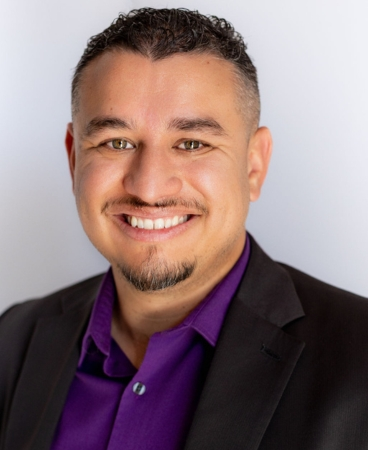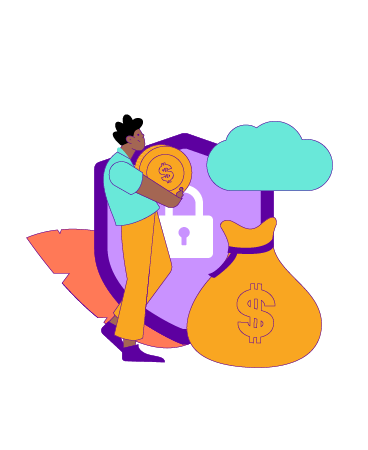Keeping an open dialog is crucial.

Financial elder abuse can take many forms, such as fake charity solicitations, telemarketing scams, and identity theft. A 2023 report by the Federal Bureau of Investigation found that scams targeting individuals aged 60 and older caused over $3.4 billion in losses in 2023—an increase of approximately 11% over 2022. The average victim of elder fraud lost $33,915 due to these crimes in 2023.
Keeping an open dialog and creating a strong support system are crucial to avoiding scams. Although talking about money can be an uncomfortable subject, the best time to discuss finances is before there is any hint of a health crisis or concern about money management. Following are some actions you can take now to help protect aging family members from financial abuse.
WATCH FOR THESE SCAMS
Even if your aging family members are in good health, they are still at risk for scams. The elderly are popular targets for criminals who often take advantage of overly trusting people. It’s important for someone to help them keep track of how they spend their money. Advise them to not give out money or personal information to strangers who may call, write, or email asking for help or demanding the repayment of a fictitious debt. Create a system where any new invoice, debt, or monetary gift is discussed before it is paid, and consider using direct deposit for important checks.
“We've had some elderly members targeted by bad characters,” says Rachel Dimas, Sunward’s Risk Manager. “In one scam, a fraudster will pose as Microsoft Security and tell the member that their computer has been hacked, and for a charge, they can help. They convince the member to allow remote access to their computer to address the issue. This lets the scammer see the member’s online actions, including when they log in to online banking. The scammer will initiate a debit, claiming that it’s their fee for helping with the (fake) security issue. Then, they’ll say that the member was overcharged for that service and will receive a credit,” she adds.
“Here’s the catch,” says Rachel. “The scammer will then say that they (the scammer) inadvertently overpaid the credit, and tell the member to wire back the overpaid funds. Since the scammer has remote access to the account, they start transferring funds to/from the member’s accounts, which, to the member, looks like they are getting an influx of credits. The scammer tells the member that these ‘credits’ are in error and that the funds must be paid back immediately by wire transfer, often out of the country,” she explains. “In some cases, members have lost tens of thousands of dollars. Sunward makes every effort to intervene if they see unusual activity like this on a member’s account.”
Rachel continues, “Another scam we’re seeing is where a fraudster poses as a Sunward employee to ask a member if they have authorized certain charges on their debit card. They gain the member’s trust, and then ask for their card information or online banking credentials – or sometimes both. With that information, the scammer begins moving money out of the member’s account via ACH transfers or with Zelle®. For the latter, they convince the member to share a one-time Zelle® set-up passcode “for security purposes” and use it to initiate transfers.”
Rachel adds, “Use caution if you receive a call that appears to be from Sunward. Remember, we will never call to ask for your online banking credentials or for you to transfer money.” She adds, “Our Sunward branch employees are on the lookout for potential fraud situations. If a member comes in requesting a wire transfer to go outside of the country, and they do not normally perform this type of activity, our Risk Management team will get involved right away.”
If you receive a call that you suspect to be fraud, hang up immediately and call Sunward or send us a secure message in online or mobile banking.
DISCUSS A POWER OF ATTORNEY
Power of attorney is a legal document that lets you appoint a person to manage your affairs if you are unable to do so yourself. If your aging family member fears they will reach a point where they can no longer handle their finances, someone will need to do it for them. Power of attorney is a way to legalize this transfer of power. Whoever signs the power of attorney document should be trustworthy and responsible.
COMMUNICATE WITH YOUR FAMILY
To ensure your elder family members’ assets are managed properly, talk to them about it sooner rather than later. Clarify what they want to be done with their money once they can no longer manage it themselves. Ask which other relevant family members they would like included in the conversation, and create a plan together. Keep everyone informed as time passes to avoid disputes later on.
The unfortunate reality is that some people become more vulnerable as they age. However, by becoming more educated on elder financial abuse and learning about the warning signs, you can be proactive in ensuring your aging family member’s finances don’t fall into the wrong hands. Visit gosunward.org/security-articles for more information about how Sunward helps protect its members from fraudsters.
Zelle and the Zelle related marks are wholly owned by Early Warning Services, LLC and are used herein under license.








